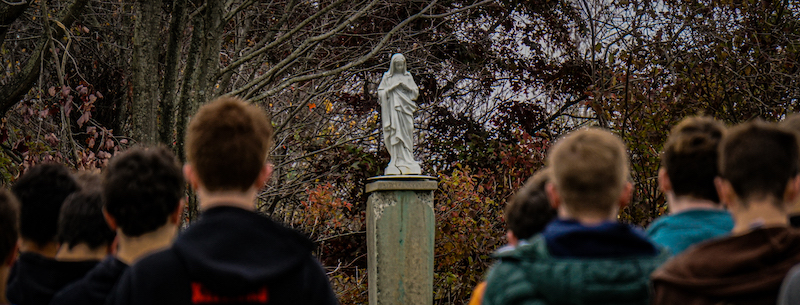At Gregory the Great Academy we place high importance on the teaching relationship as a species of friendship. Thus we foster an atmosphere where teachers willingly work with the strengths and weaknesses of the children in their care, and the students, in charity and respect for their teachers, are moved to cooperate in learning more than academics. In our students and in our teachers we wish for good hearts as much as good minds.
We take as our model St. John Bosco, who writes that harmony and friendship between students and teachers must reign freely in a school. Otherwise, a barrier of distrust develops, hindering any real influence for the good the teacher possesses. Being in a position of respected and caring authority, the teachers at Gregory the Great Academy have the potential to teach much more than their subjects. We strive to teach virtue not only in the classroom, but by example on a social and spiritual level, as students see us caring for our own children at banquets, receiving Communion at Holy Mass, being good sports when we lose a chess game to a student, and working alongside our fellow teachers with respect and care. Gregory the Great Academy follows wholeheartedly the tradition that men ought to be virtuous mentors to boys who are in their sphere of influence, and we point our students to the Saints whose example we ourselves work to emulate.
In this spirit, we have enacted a formal mentorship program whereby each of the ten dorm rooms is under the guidance of one teacher who takes a brotherly approach to his assigned room. Each mentor regularly meets with the six students under his guidance, getting to know the boys’ joys and sorrows, rejoicing and mourning with them in the true spirit of friendship, and modeling manly virtues, pursuing wisdom, and refining their tastes. These are opportunities to discuss why some music is worth listening to and some is not, how social media affects our outlook and why it can be dangerous, how to overcome temptations, and how to cultivate goodness.
This sense of togetherness, which is the essence of teaching, is the fruit of a friendly approach. “A master who is only seen in the master’s chair,” writes St. John Bosco, “is just a master and nothing more. But if he goes into recreation with the boys he becomes their brother.” Students who join in their teachers’ laughter and conversation are all the more willing to give their best effort in classroom, sports, and leisure. Love is a more powerful motivator than rigid authoritarianism.


